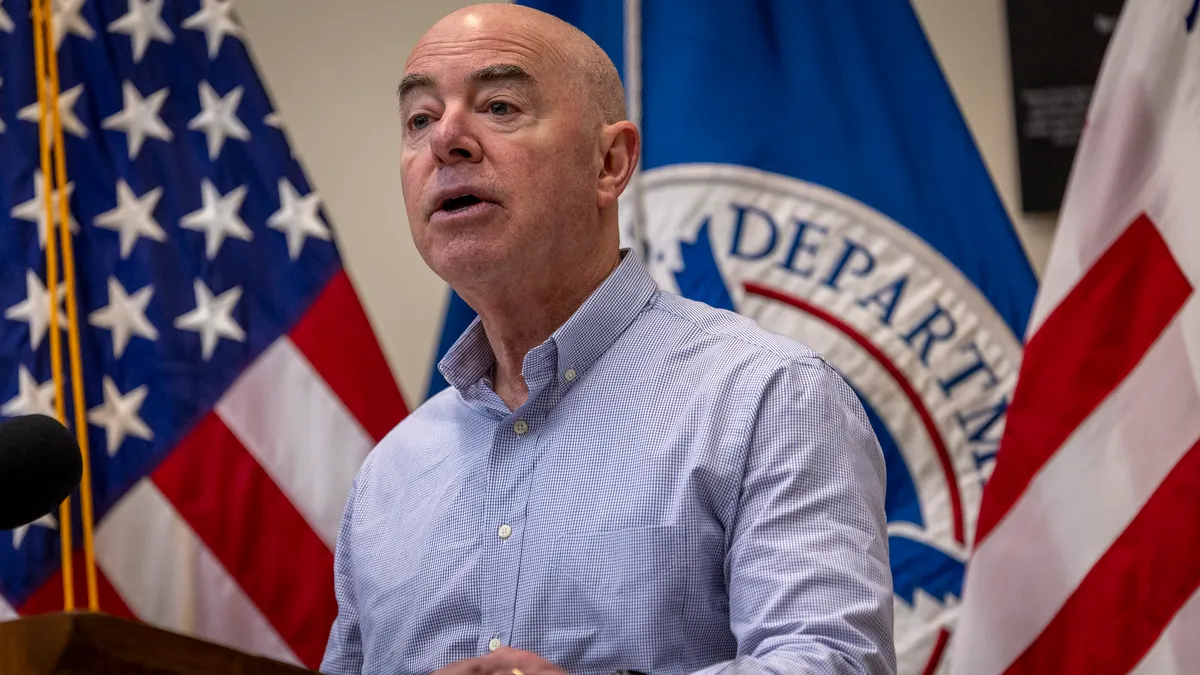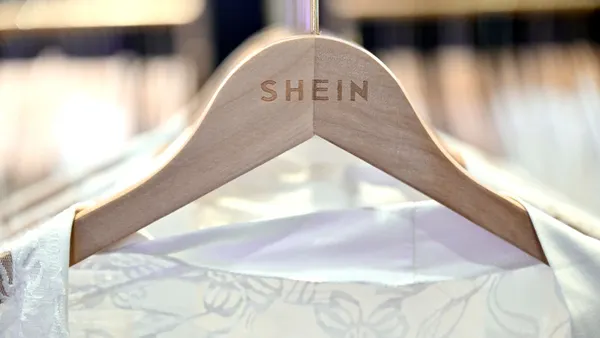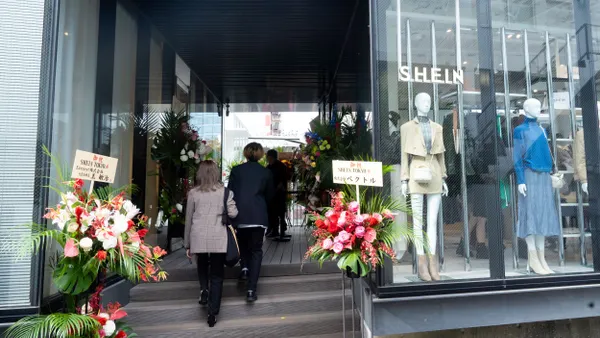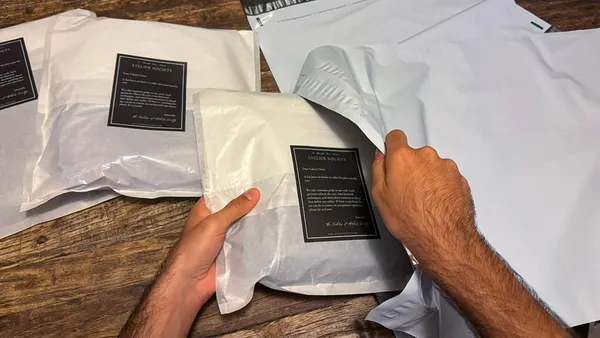Dive Brief:
- The U.S. Department of Homeland Security said it will “crack down on illicit trade” with new enforcement actions meant to “level the playing field for the American textile industry,” according to an announcement last week. The plan, the department said, is already being enforced to build on “ongoing efforts to ensure compliance.”
- The strategy includes expanded targeting and improved screening for forced labor law violations on small packages that claim the de minimis exemption of the Tariff Act of 1930, a provision which mostly exempts packages worth less than $800 from customs review. A bulk of items bought from fast fashion giants Shein and Temu benefit this exemption, according to a Congressional report last year.
- The department said the actions, which work to support more than 500,000 U.S. jobs and include collaboration between U. S. Customs and Border Protection and Homeland Security Investigations, will serve as a blueprint for “intensified targeting of small package shipments.
Dive Insight:
DHS said it plans to increase auditing of high-risk foreign facilities whose textiles fall under the U.S.-Mexico-Canada agreement or the Central America-Dominican Republic Free Trade Agreement. It also anticipates expanding its list of manufacturers and entities in violation of the Uyghur Forced Labor Prevention Act (UFLPA), a 2021 law which bans the shipment of products from the Xinjiang region of China because of concerns about forced labor.
In fiscal year 2023, the Customs and Border Protection agency, which falls under DHS, made 5,016 textile-related seizures worth more than $129 million, and it “protected and recovered” $266.6 million on misclassified, undervalued, or unsubstantiated free trade agreement claims, per the DHS announcement.
In terms of forced labor violations, CBP issued 1,859 penalties, reviewed over 780 shipments valued at approximately $40 million, and denied entry to more than half of those shipments, per the announcement.
Because Shein and Temu ship items individually, directly to customers and cost an average of $11, they avoid tariffs and screening through the de minimis provision. In June, a bipartisan group of lawmakers proposed the Import Security and Fairness Act, which would end the de minimis exemption for goods from China and Russia.
“The textile industry, like [other] industries, suffers when competitors use forced labor, violate customs laws, and engage in other illegal practices to undercut U.S. businesses and drive prices unfairly low,” DHS Secretary Alejandro Mayorkas said in the announcement. “Through strengthened enforcement measures, enhanced inspection and testing, and increased information sharing, this Administration is protecting thousands of American workers and the U.S. textile industry.”
Since the start of the Biden administration, DHS has added 10 entities from the textile sector to its list of entities violating the UFLPA, according to the announcement.
In the year after the UFLPA was enforced, the CBP detained $1.7 billion in shipments bound for the U.S., according to a Kharon report released last September. Of these shipments, apparel, footwear and textiles as well as industrial, manufacturing and electronics were the primary target of detentions.
The same day as the DHS announcement, the American Apparel & Footwear Association, the National Retail Federation, the Retail Industry Leaders Association, and the United States Fashion Industry Association issued a joint statement in response.
“A successful enforcement plan must include input from all stakeholders, clear communication with the trade, and coordinated activities with importers, especially if DHS finds illicit activity happening in the supply chain,” the groups said in the statement. “As our members look to diversify their supply chains, especially back to the Western Hemisphere, we must make sure efforts are included to incentivize and not deter new investments.”










